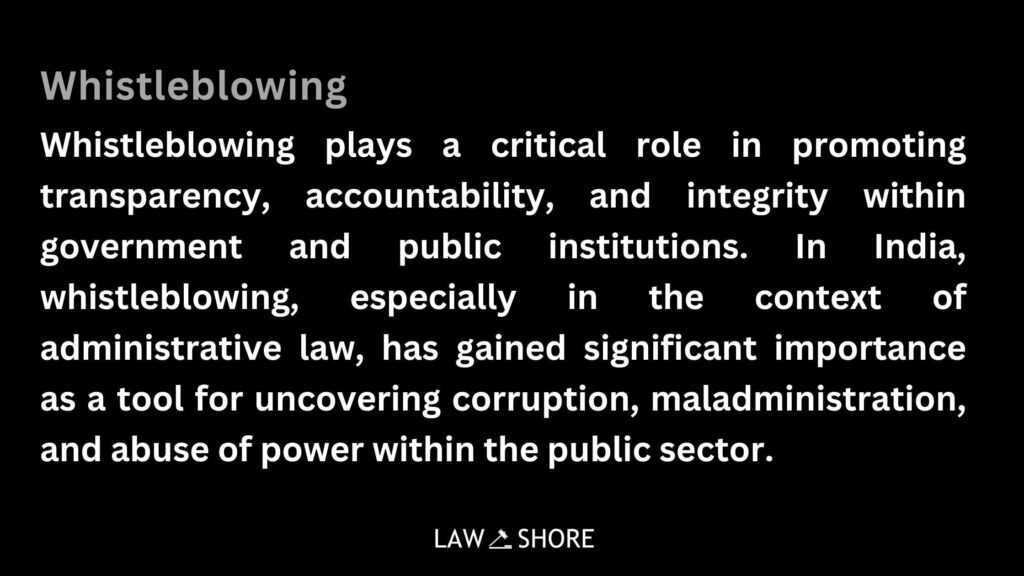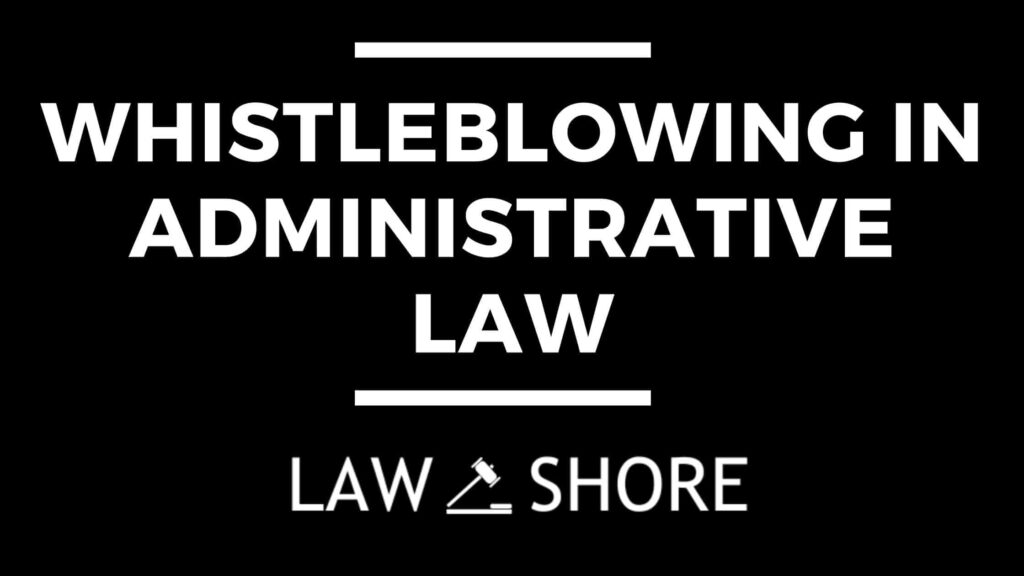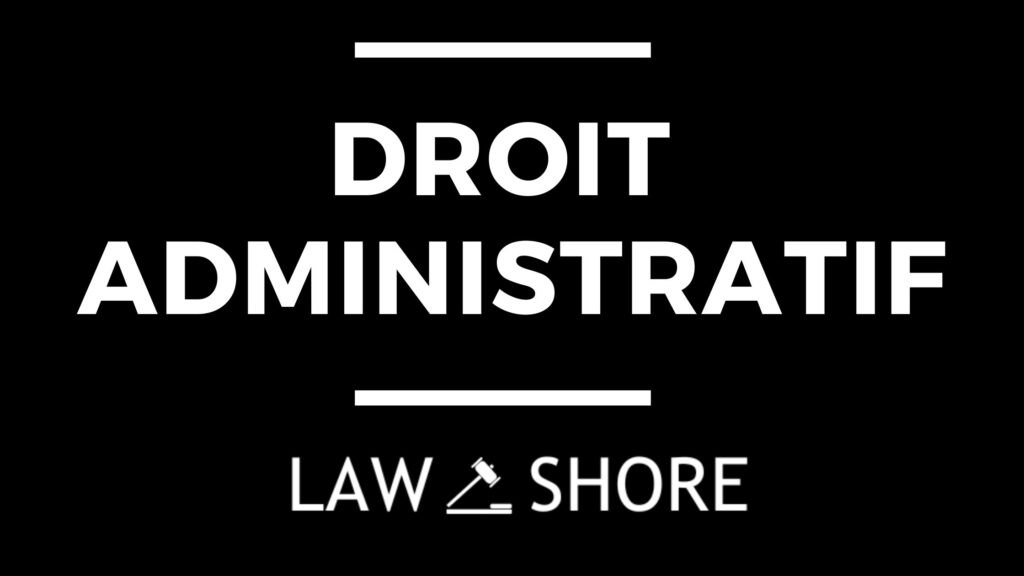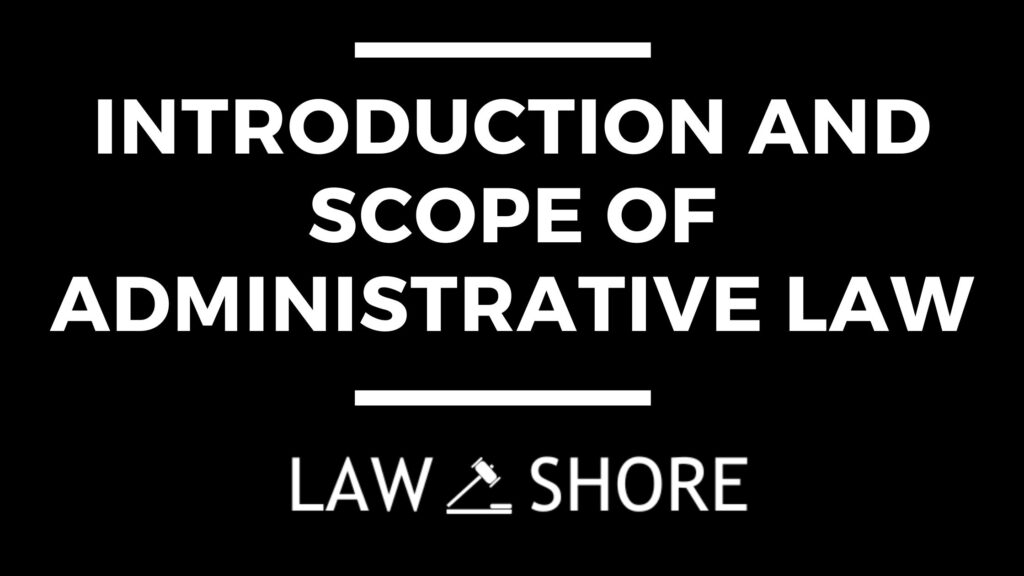Whistleblowing in Administrative Law
Table of Contents
ToggleWhistleblowing plays a critical role in promoting transparency, accountability, and integrity within government and public institutions. In India, whistleblowing, especially in the context of administrative law, has gained significant importance as a tool for uncovering corruption, maladministration, and abuse of power within the public sector. This article examines the concept of whistleblowing in administrative law in India, the legal framework surrounding it, the protections available to whistleblowers, and the challenges they face.

Meaning of Whistleblowing
In administrative law, whistleblowing refers to the act of reporting misconduct, illegal activities, or unethical behaviour by public officials or institutions. It involves an individual usually an insider such as an employee or a government officer informing authorities about corruption, fraud, misuse of power, or other illegal practices occurring within government agencies or public organizations.
Whistleblowers serve as vital instruments in ensuring that administrative bodies and public institutions operate fairly and transparently. The disclosure of misconduct can be made through internal mechanisms (within the organization) or through external bodies such as government watchdogs or Ombudsman institutions (Lokpal, Lokayukta).
Importance of Whistleblowing
Whistleblowing is indispensable in ensuring good governance and maintaining public trust in government institutions. Its significance can be outlined in the following points:
- Prevention of Corruption
Whistleblowers often expose corruption or other unethical practices that are otherwise hidden within the bureaucratic machinery. Prompt reporting allows for timely investigations, reducing the potential for further corruption. - Promoting Transparency
Whistleblowing ensures that government operations are transparent and subject to public scrutiny. It helps in uncovering and rectifying hidden inefficiencies, fostering a culture of openness in public administration. - Upholding Accountability
By reporting misconduct, whistleblowers hold public officials accountable for their actions, ensuring that they adhere to legal and ethical standards in their duties. - Protection of Public Interest
Whistleblowing helps protect public resources and citizen welfare by exposing and addressing instances where government agencies misuse their power or funds. - Deterrence
The fear of being reported can act as a deterrent against corrupt practices, thereby helping to prevent wrongdoing before it occurs.
Whistleblowing in the Indian Context
The Role of the Lokpal and Lokayukta
The Lokpal (at the central level) and Lokayuktas (at the state level) are central to India’s whistleblowing framework. These institutions, established through the Lokpal and Lokayukta Act, 2013, play an essential role in handling complaints of corruption and misconduct in government offices. The Lokpal, in particular, provides protection and ensures the integrity of the whistleblower’s reports.
Legal Protections for Whistleblowers in India
The Whistleblower Protection Act, 2014
The Whistleblower Protection Act, 2014, is the primary piece of legislation providing legal safeguards for whistleblowers in India. Some of its key features include:
- Protection from Retaliation: The Act protects whistleblowers from retaliation such as dismissal, demotion, or harassment for reporting corruption or misconduct.
- Anonymous Reporting: Whistleblowers can report wrongdoing anonymously, ensuring that their identity remains confidential and protected.
- Establishment of a Whistleblower Protection Authority: The Act mandates the creation of a Whistleblower Protection Authority to oversee complaints and protect individuals from retaliation.
- Penalties for Retaliation: The law prescribes penalties for those found guilty of retaliating against whistleblowers, including imprisonment and fines.
Lokpal and Lokayukta Act, 2013
The Lokpal and Lokayukta Act, 2013, provides a mechanism for investigating complaints against public servants, including corruption cases involving senior government officials such as ministers and bureaucrats. It also contains provisions related to the protection of whistleblowers who report such misconduct. Key features include:
- Power to Investigate: Lokpal has the authority to investigate complaints, including those filed by whistleblowers, and take action against corrupt public officials.
- Whistleblower Protection: The Lokpal Act ensures that whistleblowers are shielded from retaliation, and their complaints are processed with confidentiality.
Challenges Faced by Whistleblowers in India
While India’s legal framework has made progress in protecting whistleblowers, several challenges still persist, which prevent individuals from effectively using the whistleblowing mechanism.
- Fear of Retaliation
One of the most significant barriers to whistleblowing in India is the fear of retaliation. Whistleblowers often face job loss, professional setbacks, threats to personal safety, or even physical harm, discouraging many potential reporters from coming forward. - Ineffective Enforcement
Despite the existence of laws to protect whistleblowers, enforcement remains weak. Instances of delayed investigations, lack of prompt action, and ineffective implementation of legal safeguards undermine the confidence of whistleblowers and potential reporters. - Lack of Awareness
Many citizens and government employees are unaware of their rights under whistleblower protection laws. A lack of awareness often prevents them from utilizing the mechanisms in place to report misconduct effectively. - Institutional Resistance
In certain cases, the very institutions designed to protect whistleblowers may be compromised, especially when dealing with corruption at high levels. This institutional resistance can make the process of whistleblowing ineffective or even counterproductive. - Slow Investigation Processes
In cases involving powerful individuals or political figures, the investigation of whistleblower complaints can be slow, leading to frustration and discouragement. Delays allow accused parties to delay justice or cover up their activities.
The Role of the Ombudsman in Whistleblowing
The Ombudsman, particularly through the Lokpal at the central level and Lokayuktas at the state level, plays a pivotal role in addressing the concerns of whistleblowers and investigating complaints of corruption and misconduct.
- Protection of Whistleblowers
The Ombudsman ensures that whistleblowers who report corruption or malfeasance are protected from retaliation. Through its independence and authority, the Lokpal and Lokayuktas provide a safe avenue for individuals to report wrongdoing, knowing their identity will be protected. - Investigation of Complaints
Once a complaint is made, the Ombudsman (Lokpal/Lokayukta) has the legal authority to initiate investigations. The Ombudsman can act impartially and independently of political or institutional pressures, ensuring that the complaints are thoroughly investigated and acted upon. - Promoting Transparency and Accountability
By publicly disclosing the findings of investigations and ensuring that public officials are held accountable, the Ombudsman strengthens transparency in government institutions. This also acts as a deterrent against future corruption and misconduct.
Recent Developments and Future Prospects
India has made significant strides in creating a legal framework to protect whistleblowers, especially with the introduction of the Whistleblower Protection Act and the Lokpal and Lokayuktas Act. However, challenges remain, such as institutional resistance, fear of retaliation, and delays in the investigation process.
- Strengthening Legal Protections
Future reforms should focus on strengthening the enforcement of whistleblower protection laws, ensuring swift action in retaliation cases, and providing greater resources to investigative bodies like the Lokpal. - Raising Awareness
A comprehensive national awareness campaign about whistleblower rights and the legal protections available would empower more individuals to come forward and report corruption or malpractices. - Empowering Oversight Bodies
To ensure effective whistleblower protection, oversight bodies like the Lokpal and Lokayuktas need to be empowered with greater independence, resources, and authority to carry out swift investigations and provide timely action.
Conclusion
Whistleblowing serves as a critical tool in promoting transparency, accountability, and ethical governance in India. By exposing corruption, abuse of power, and malpractices, whistleblowers play a vital role in improving the functioning of public institutions.
Legal protections such as the Whistleblower Protection Act, 2014, and the Lokpal and Lokayuktas Act, 2013, offer a framework for protecting those who come forward to report misconduct. However, challenges such as retaliation, slow investigations, and lack of awareness remain prevalent. Strengthening the existing legal mechanisms, enhancing the independence of oversight bodies, and fostering a culture of accountability will be essential to ensuring that whistleblowers are adequately protected and their reports lead to meaningful reforms in India’s public administration.
Also, Check Out Other Topics in Administrative Law:
- Introduction and Scope of Administrative Law
- Droit Administratif
- Ombudsman in Administrative Law
- Promissory Estoppel in Administrative Law
- Public Corporation in Administrative Law
- Reasons for Growth of Administrative Law
- Doctrine of Separation of Powers in Administrative Law
- Doctrine of Ultra Vires in Administrative Law
- Nature of Administrative Law
- Red Light and Green Light Theory of Administrative Law
- Sub Delegation in Administrative Law
- Delegatus Non Potest Delegare
Explore Law Shore: law notes today and take the first step toward mastering the fundamentals of law with ease.

After Completing my LLB hons, I started writing content about legal concepts and case laws while practicing. I finally started Law Shore in 2024 with an aim to help other students and lawyers.



